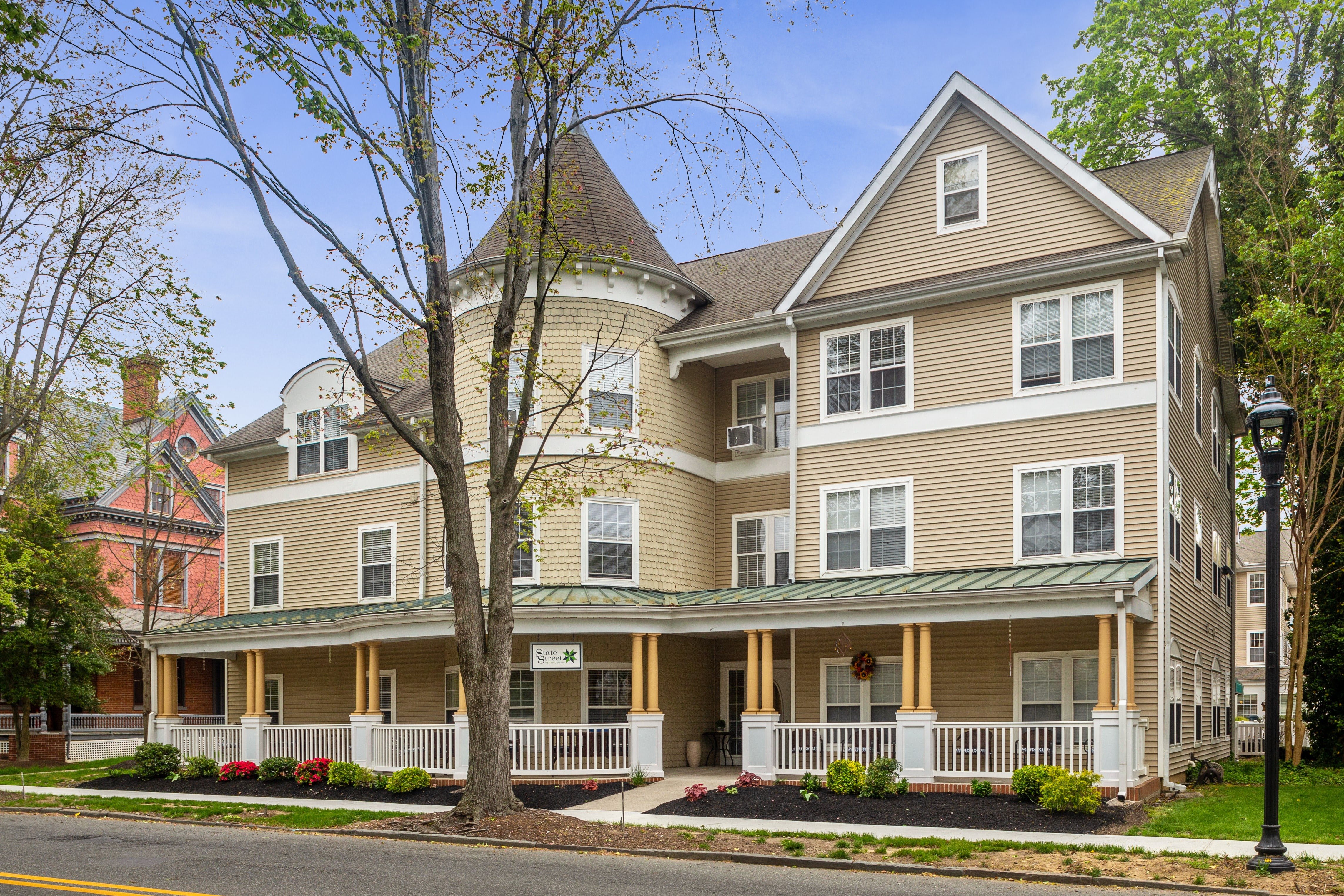Personalized Memory Care for Dementia in a Comforting Space
Personalized Memory Care for Dementia in a Comforting Space
Blog Article
Checking out the Value of Memory Treatment Solutions in Small Memory Treatment Homes
Memory treatment services play a necessary role in improving the lives of individuals with cognitive impairments. In small memory care homes, the emphasis moves to individualized treatment customized per resident's distinct requirements. These intimate settings foster much deeper connections and a supportive neighborhood. The concern remains: just how do these settings particularly add to the psychological wellness of both homeowners and their family members? Understanding this vibrant discloses the real value of specialized memory treatment.
Understanding Memory Care and Its Relevance
Memory treatment is an essential element in attending to the one-of-a-kind needs of individuals with cognitive impairments, such as dementia and Alzheimer's illness. This specific form of treatment concentrates on creating a encouraging and secure environment customized to the difficulties faced by these individuals. Memory care facilities employ trained personnel that recognize the complexities of cognitive decline, providing personalized treatment that promotes self-respect and respect.Activities and routines are created to stimulate memory retention and cognitive feature while guaranteeing security and safety. In addition, memory treatment emphasizes social interaction, which can ease feelings of isolation and improve emotional health. By cultivating a structured environment, people can browse their every day lives with even more self-confidence. Understanding the value of memory care reveals its role in boosting quality of life, making it possible for individuals to keep as much independence as possible while receiving the assistance they require.

The Advantages of Smaller Sized Memory Treatment Houses
Smaller memory care homes supply a more intimate setting that can substantially enhance the top quality of look after citizens. With less citizens, personnel can construct more powerful relationships, promoting count on and emotional links. This customized attention usually results in enhanced communication, making it much easier for caregivers to comprehend and meet the one-of-a-kind demands of each resident. In addition, smaller environments usually lower stressors and interruptions, promoting a soothing ambience helpful to memory retention and emotional health. The design of smaller homes typically encourages socializing among locals, enabling meaningful communications that can combat sensations of seclusion. Additionally, these homes can adapt more swiftly to modifications in care requirements, ensuring that homeowners get prompt assistance. In general, the tailored attention, lowered stress and anxiety, and enhanced social opportunities discovered in smaller sized memory treatment homes create a nurturing environment that supports both cognitive function and emotional health
Personalized Treatment Program for Person Demands
Customized care strategies are vital in addressing the unique needs of people in memory care. These plans frequently include tailored assistance strategies that enhance daily living and advertise health. Furthermore, customized activity interaction assists homeowners connect with their interests, fostering a sense of function and joy.
Customized Support Approaches
Comprehending the unique needs of each person is essential when developing tailored support approaches in memory treatment services. These approaches involve developing tailored treatment strategies that satisfy the details needs, choices, and capabilities of residents. By assessing cognitive function, emotional well-being, and physical health and wellness, caregivers can develop reliable interventions that promote comfort and independence - small memory carehomes Charlotte. This personalized approach guarantees that each citizen gets appropriate support, enhancing their lifestyle. Normal assessments and adjustments to these strategies are necessary, as they enable caretakers to react proactively to changing demands. Furthermore, engaging family members in the planning process promotes a collaborative environment, reinforcing the assistance network for individuals with memory obstacles. Eventually, customized assistance strategies are critical for providing compassionate and reliable memory treatment
Individualized Task Involvement
Producing meaningful engagement with individualized activities is necessary in memory treatment services. Memory care homes prioritize individualized care plans that deal with the distinct needs and choices of each homeowner. These plans usually include tasks tailored to locals' interests, capacities, and cognitive levels, enhancing their sense of purpose and dignity. By incorporating acquainted routines, pastimes, and social interactions, caregivers can stimulate cognitive feature and emotional well-being. Personalized task engagement not only fosters an encouraging atmosphere however additionally encourages homeowners to keep their independence. The active engagement in these customized activities can result in improved state of mind and decreased stress and anxiety, reinforcing the value of an all natural method in memory treatment that acknowledges each person's trip and one-of-a-kind experiences.
Developing a Supportive Area Environment
While cultivating a supportive neighborhood environment is crucial for those with memory care requirements, it requires deliberate layout and thoughtful interaction. Creating such an environment includes a combination of physical area and social connections. Tiny memory treatment homes can profit substantially from layouts that urge social communication, such as open common areas and comfy gathering rooms. These designs promote a sense of belonging and safety for residents.Moreover, employee play an essential function in growing this setting. Training caregivers to prioritize compassion and active listening boosts connections and cultivates depend on. In addition, entailing family members in treatment plans and area tasks can enhance bonds and produce a network of assistance.
Enhancing Social Involvement and Tasks
Efficient social interaction and tasks are vital for improving the well-being of citizens in memory care homes. These interactions not only foster a sense of belonging however likewise promote cognitive functions, which can positively impact memory retention. Small memory care homes usually provide customized programs customized to the distinct passions and capacities of each homeowner, allowing for even more meaningful and reliable engagement.Activities such as art therapy, songs sessions, and group games urge residents to get in touch with each other, promoting friendships and minimizing sensations of isolation. Additionally, including exterior tasks, such as gardening or nature walks, can improve mood and general health.These enhancing experiences assist homeowners keep a sense of function and delight in their lives. By creating a setting that focuses on social communication, little memory treatment homes considerably contribute to the mental and emotional health of their residents, guaranteeing they feel valued and supported in their trip.
Sustaining Families Via the Journey
As family members navigate the difficulties of caring for an enjoyed one with memory impairment, the assistance offered by tiny memory treatment homes comes to be vital. small memory carehomes Charlotte. These homes provide not just customized care for citizens but also important sources for families. By fostering a collaborative setting, small memory care homes encourage open communication, permitting family members to express problems and share experiences.Support groups and educational workshops are commonly offered, furnishing family members with knowledge and strategies to take care of the complexities of amnesia. Such initiatives aid decrease sensations this hyperlink of isolation, as families get in touch with others facing comparable situations.Moreover, small memory treatment homes usually supply customized updates on residents' wellness, relieving households' worries and aiding them really feel included in their liked one's day-to-day live. This alternative technique to sustain not just boosts the quality of care for residents but also equips family members throughout their emotional journey
The Impact of Specialized Personnel Educating on Care Top Quality
In tiny memory care homes, the quality of treatment is greatly influenced by the training and knowledge of the staff. Specialized training furnishes caretakers with crucial abilities to understand and resolve the unique needs of homeowners with memory disabilities. Knowledge of dementia-related habits, efficient interaction techniques, and person-centered care approaches boosts the ability of personnel to develop an encouraging environment.Moreover, experienced personnel are much better prepared to take care of challenging circumstances, minimizing the probability of problems and guaranteeing a calmer environment. This training promotes a much deeper emotional connection between citizens and caregivers, advertising count on and boosting general wellness. Additionally, specialized training can lead to higher job contentment amongst caretakers, lowering turn over prices and offering continuity of look after locals. Ultimately, the investment in team education and learning significantly boosts the criterion of treatment, which is important for improving the top quality of life for individuals in little memory care homes.

Frequently Asked Inquiries
How Do I Select the Right Memory Care Home for My Liked One?
Choosing the ideal memory care home involves examining personal requirements, seeing facilities, reviewing team experience, comprehending care options, thinking about place, contrasting costs, and seeking referrals. Each factor plays an important role in guaranteeing ideal care.
What Is the Cost Distinction In Between Little and Big Memory Treatment Facilities?
The cost difference in between large and small memory care centers can vary significantly. Usually, tiny homes may use more customized treatment at a higher per-person rate, while larger centers usually provide extra facilities at a lower overall cost.
Exactly How Commonly Can Households Visit Their Liked Ones in Memory Treatment Homes?
Families can typically see their liked ones in memory care homes as often as preferred, with numerous facilities encouraging routine brows through to keep connections and support emotional wellness, though certain policies might vary by home.
What Certain Activities Are Offered in Small Memory Care Residences?
Small memory treatment homes typically offer tasks like arts and crafts, songs therapy, gardening, workout classes, and cognitive video games. These tasks are developed to involve locals, stimulate their minds, and promote social interaction amongst them.
Exist Any Age Constraints for Locals in Memory Treatment Facilities?
Age restrictions for homeowners in memory treatment centers typically differ by location and specific center plans. Typically, these homes provide to older grownups, typically needing residents to be at the very least 55 or 60 years old. In little memory treatment homes, the emphasis shifts to personalized treatment tailored to each homeowner's special needs. Memory care facilities use qualified team who comprehend the intricacies of cognitive decline, supplying customized treatment that advertises dignity and respect.Activities and regimens are made to stimulate memory retention and cognitive function while guaranteeing safety and protection. Smaller sized memory treatment homes use a more intimate setting that can right here significantly boost the top quality of care for homeowners. Memory treatment homes prioritize individualized care plans that cater to the distinct needs and preferences of each resident. As families browse the difficulties of caring for a loved one with memory disability, the support offered by tiny memory treatment homes comes news to be vital.
Report this page